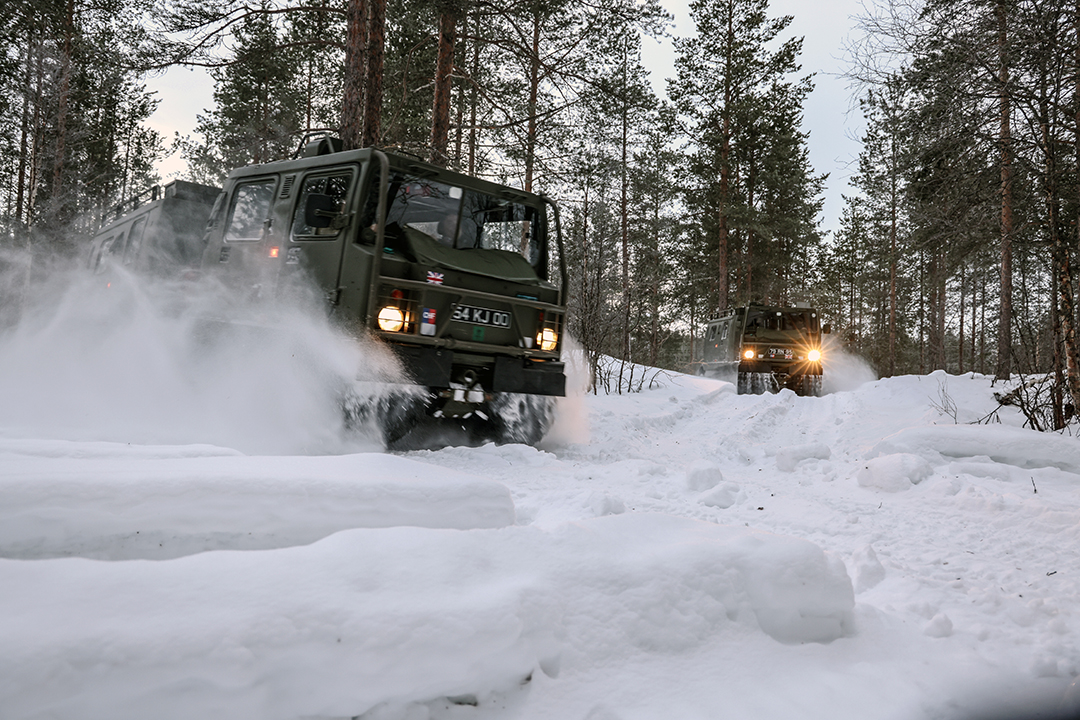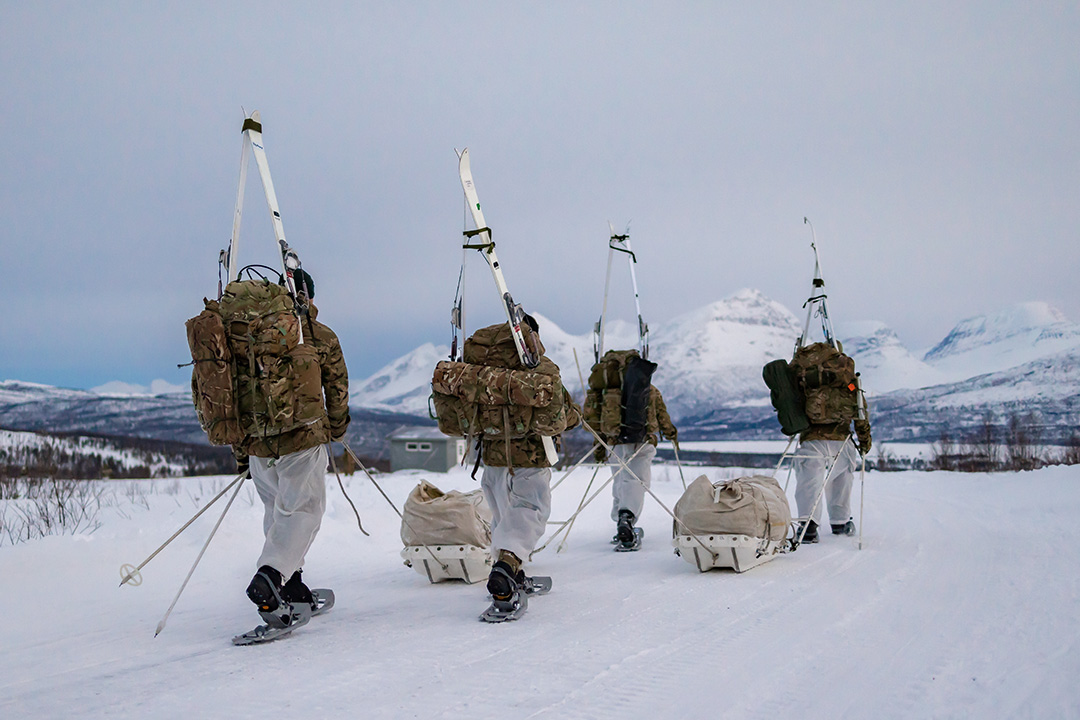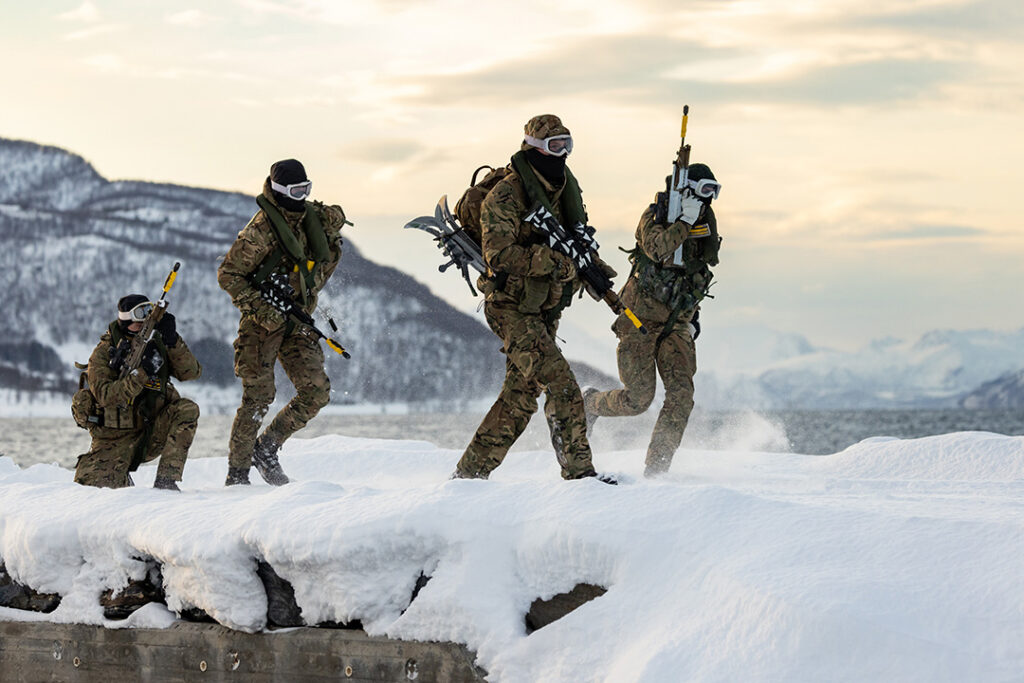BRITISH ARMED FORCES
The Arctic is increasingly important to the United Kingdom. We might not be an Arctic nation, but we are its nearest neighbor. Our northern-most isles are closer to the Arctic than to London. The U.K. already has long-standing commercial, security, environmental and scientific commitments in the region. But, as the polar ice caps melt and new sea lanes emerge, the threats to the region are growing even as opportunities increase.
That is why the U.K. published its first Arctic strategy: “U.K. Defence Contribution in the High North.” Its four key objectives offer a clear articulation of strategic messages. First, the U.K. will protect its critical national infrastructure and other national interests, as well as those of its allies. Second, it will defend the freedom of navigation and operation across the wider region. Third, the U.K. will protect its rights and reinforce the rules-based international system, particularly the United Nations Convention on the Law of the Sea. And fourth, it will ensure the region remains an area of low tension by countering aggression and contesting the destabilizing behaviors that threaten its interests and the safety of Arctic inhabitants.

We are equally clear-sighted about how to deliver these goals. We will increase our understanding of the region’s complex topography, making the most of our world-leading hydrographic meteorological and oceanographic data as well as increasing our holding of regional geospatial information. We will maintain a persistent presence in the region, not just through a regular drumbeat of deployments from Icelandic Air Policing to P-8A maneuvers, but also by establishing a new Littoral Response Group (North).
Optimized for the region and comprising commando forces, ships and helicopters, the group will be able to plug into NATO and Joint Expeditionary Force (JEF) operations and give us the ability to project force if and when required. Finally, we will enhance our capabilities. We are investing in anti-submarine warfare frigates, multi-role ocean surveillance capabilities and purpose-built ice patrol ships. But we will also harness part of our £6.6 billion science and technology budget to invest in cutting-edge innovations ensuring our personnel can adapt to the rigors of Arctic temperatures.
But our strategic success in the region hinges on the strength of our partnerships. The U.K. has strong relationships with almost all Arctic states. We also play an important role in protecting underwater critical national infrastructure and ensuring freedom to operate in the North Atlantic, including in the Greenland-Iceland-U.K. (GIUK) Gap. We are determined to strengthen these ties. On a multilateral level, we will use our leadership and influence in the JEF, the Northern Group and the Arctic Security Forces Roundtable to share information, discuss shared concerns and coordinate plans to offset dangers. Meanwhile, we will encourage NATO to play a more proactive and proportionate role in the region. The recent success of Exercise Cold Response – the largest military exercise since the end of the Cold War – demonstrated that collectively we have what it takes to defend, fight and thrive in the harshest conditions. Once again, the U.K. came to the fore, sending six Royal Navy vessels as well as our carrier HMS Prince of Wales to take part. (Pictured: Royal Marines deploy to northern Norway to carry out their winter duties in the Arctic Circle.)

Bilaterally, our Royal Marine Commando Force has a long-standing cooperative agreement with Norway and the U.S. as well as the potential to extend this collaboration to our Dutch friends. Our Armed Forces will continue enhancing their cold-weather training alongside partners such as Finland, Norway and Sweden. We continue working with the Canada, Denmark, France, the Netherlands, Norway and the U.S. to develop a new generation of anti-submarine warfare frigates to stave off sophisticated dangers to regional seas. And, alongside our allies, we will go further still — exploring how space technologies can keep us connected in the region whatever the weather.
Our message to our Arctic allies is that the U.K. will remain on the watch. As Arctic temperatures rise, we will help keep tensions low, working alongside our Arctic allies to counter dangers and preserve their pristine environments for the benefit of future generations.

